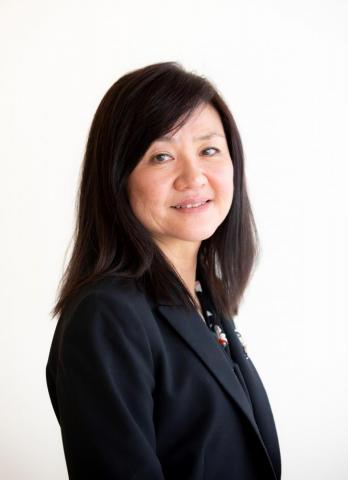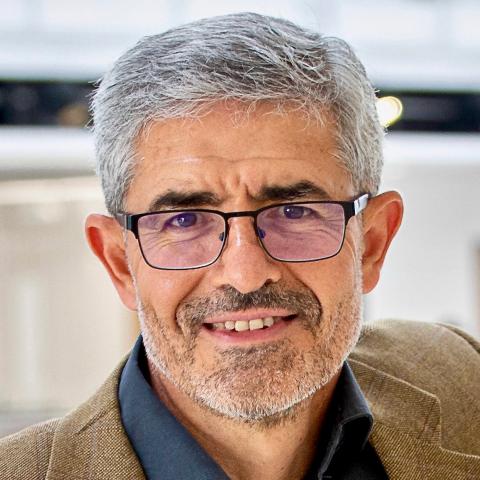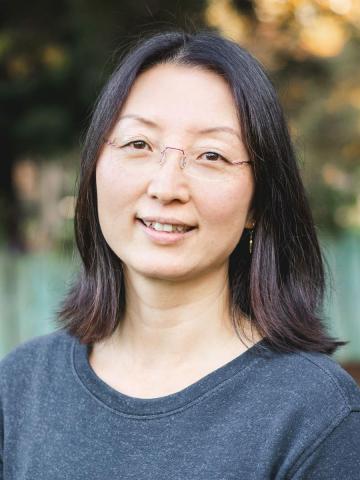
Chair Professor | Li-Huei Tsai
Picower Professor of Neuroscience, Department of Brain and Cognitive Sciences
Co-Director, The Alana Down Syndrome Center
Founding Director, The Aging Brain Initiative, MIT
Senior Associate Member, The Broad Institute of MIT and Harvard
Academician, Academia Sinica, Taiwan
Academician, US National Academy of Medicine
Academician, American Academy of Arts and Sciences
Fellow, American Association for the Advancement of Science
Fellow, National Academy of Inventors
Professor Tsai is interested in elucidating the pathogenic mechanisms underlying neurological disorders that impact learning and memory. Lab website: Tsai Laboratory at MIT

Chair Professor | José del R. Millán
Former Defitech Foundation Chair in Brain-Machine Interface at the École Polytechnique Fédérale de Lausanne in Switzerland
IEEE Fellow
Fellow of the International Academy of Medical and Biological Engineering
Dr. Millán has made fundamental contributions to the field of brain-machine interfaces (BMI), especially based on electro-encephalogram signals, the design of brain-controlled robots and neuroprosthetics. He is prioritizing the translation of BMI to end-users suffering from motor and cognitive disabilities, and designing BMI technology to offer new interaction modalities for able-bodied people.
Profile
Lab website: CNBI Lab

Chair Professor | Kuei-Sen Hsu
Associate Dean, College of Medicine, National Cheng Kung University
Professor Hsu research elucidates the cellular and molecular mechanisms underlying the induction and maintenance of long-term synaptic plasticity and the molecular basis underlying learning and memory. His studies on the pathological mechanisms disrupting synaptic plasticity provide new insights into mental illness and drug abuse.
Department profile
Research profile

Chair Professor | Linda Greensmith
Fellow of the Academy of Medical Sciences
Fellow of The Royal Society of Biology
Head of The Department of Neuromuscular Disease at UCL Queen Square Institute of Neurology
Scientific Director of the UCL Queen Square MND Centre
Professor Greensmith runs the Graham Watts Laboratories for Research into Motor Neuron Disease (MND) at UCL Queen Square Institute of Neurology. Her research is focused on improving our understanding of the pathophysiology of motor neuron degeneration and muscle paralysis, and in developing novel therapeutic approaches for MND/ALS. Her group uses a wide range of techniques, ranging from whole animal physiology to RNA transcriptomics. They are recognized for their expertise in mouse models of MND/ALS and for undertaking preclinical trials, with the long term aim of translating these findings into disease modifying therapies for patients.
The Graham Watts Laboratories for Research into Motor Neuron Disorders
Motor Neuron Disease Centre
Neuromuscular Diseases - UCL Institute of Neurology
UCL Queen Square Institute of Neurology

Chair Professor | Lu Chen
Professor, Dept. of Psychiatry and Behavioral Science, Stanford University
Professor, Wu Tsai Neuroscience Institute, Stanford University
Professor Chen focuses on understanding the molecular and cellular mechanisms underlying synaptic plasticity and memory engram formation during behavioral learning, and how synapse functions are altered in neurodevelopmental disorders
Lab Website: Lu Chen Lab

Chair Professor | Su-Chun Zhang
Provost Chair Professor, National University of Singapore
Director of Neuroscience and Behavioral Disorders Program, Duke-NUS Medical School
Professor Zhang's research addresses how functionally diversified neuronal and glial subtypes are born in the making of our human brain with the long-term goal of repairing injured or disease brain. He has developed models of neural differentiation from mouse, monkey, and human embryonic stem cells (ESCs) that recapitulate key early developmental events, including induction of multipotential neuroepithelial cells that form neural tube-like structures, patterning of region-specific neural progenitors, and generation of neurons and glia with particular transmitter or functional phenotypes. In parallel, he is building transgenic human ESC lines with regulatable gene expression and dissecting biochemical interactions underlying the cellular differentiation processes under defined conditions. By introducing disease-provoking genes into ESCs or by activating the pluoripotent state of genetically mutated adult cells, Dr. Zhang is creating model systems for analysis of pathological cellular and molecular processes in bona fide human neurons and glia in a simplified environment. Such systems may be transformed to templates for pharmaceutical screening. In addition, the specialized neural cells produced from normal human ESCs in the Zhang lab are being tested for their therapeutic potential in animal models of neurological diseases such as Parkinson's disease, amyotrophic lateral sclerosis, spinal cord injury, and multiple sclerosis.
Duke-NUS profile
UW-Madison profile
